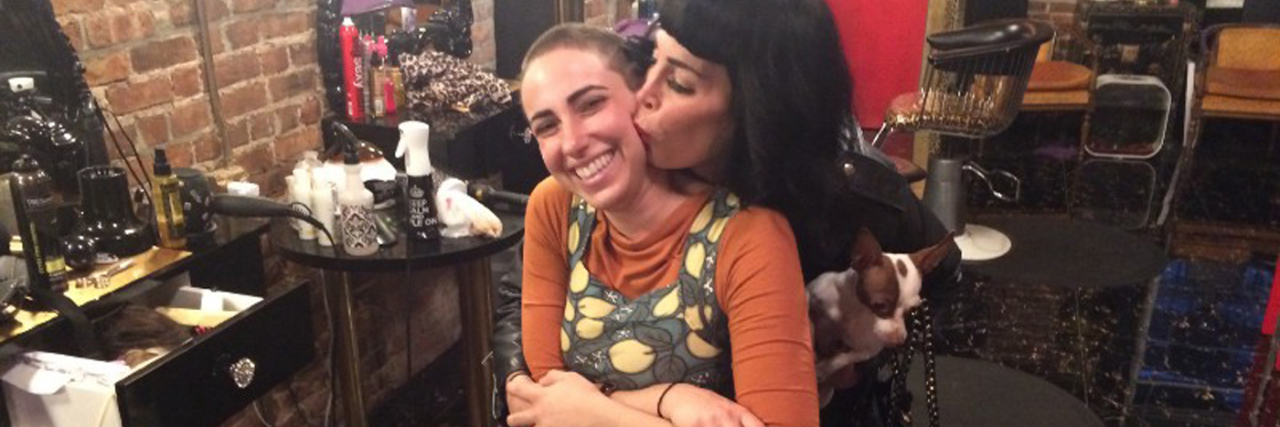Beauty is a difficult thing to lose all at once. I’ve heard it’s even a difficult thing to lose slowly, year by year, over decades.
I have an early memory of an old woman (my grandmother? a family friend?) telling me it wasn’t “her face” she saw anymore in the mirror. Even though the change happened gradually, in her mind’s eye, she stayed forever young.
My chemo nurse Diane talked a lot about women losing their hair. The ones who shaved it all off in the beginning, before any ever fell out. The one who had a little balding at the hairline, and covered it up with headbands. The one who lost every strand but one, smack in the middle of her scalp, which she refused to shave. It lasted right through to the end.

“But you’re young and beautiful,” Diana said, looking at me and sighing. “So what’s that like?”
She didn’t mean, what is it like to be young and beautiful right now. She meant, what is it like knowing you’re about to lose it.
I couldn’t answer her. There were too many things I’d have had to piece together, and they didn’t form a cohesive whole. My main thoughts were:
I’ve always sort of wanted to shave my head.
But not really.
And anyway, I’m not choosing this.
What if it doesn’t grow back?
Now that it’s fallen out (and, at least thus far, not grown back), I realize I would have been wiser to think back to the old woman who didn’t see “her face” in the mirror. The thing about losing my beauty has been that I remain my old self. In every way but one: my appearance.

What I mean is, I still act as though I am, like the nurse said, young and beautiful. I still expect people to treat me as if I am young and beautiful. When they don’t — when men on the subway look through me as if I’m invisible, when days pass without the mild street harassment that’s been a constant part of my life since I was 12, when my smile is suddenly powerless to change moods and minds — these, and not glimpses of my reflection, are the hurtful reminders of what I’ve lost.
Am I grieving it? Really? The stares, the catcalls? The violation of being undressed by a stranger’s eyes?
Yes. Before, I had the luxury of breaking it down into pieces, pretending each piece was separate.
That catcall offends me.
The man following me scares me.
The man returning my smile affirms me.
The one who waits and holds the door warms me.
When my eyes meet a stranger’s in a moment of shared attraction, the world opens wide with possibility.
They’re not separate. Maybe someday, in a more perfect world, they will be. But in the time and city I live in, these things together are the sum of what I think it means to be a young and beautiful woman.

The thing is, I sort of like the way I look bald. I like the shape of my skull. When people tell me that that I’m “rocking it,” I at least partially agree with them.
It amazes me how little this matters. When I look back on it, all the sayings about how true beauty comes from the inside and confidence makes you beautiful, have the ring of false platitudes. Beauty is about appearance, and appearance is about how others see you. Any other view of beauty requires a fundamental redefining of the term.
It’s no wonder, then, that confidence and self-love are no substitute for fitting cultural beauty standards.
So, yes, I grieve it. Not the hair I lost, but the world I lost. Maybe I knew before, on some level, that the world we live in differs dramatically based on how we appear. I know I listened attentively when people talked about the different worlds we inhabit because of skin color or gender. But I don’t think I listened when middle-aged women talked about becoming invisible. It seemed much less important, and it was.

Except I overlooked one thing: if I lived long enough, I was always guaranteed to become invisible, too. It just happened very, very early and very, very fast.
This post was previously posted on Medium.
We want to hear your story. Become a Mighty contributor here.

